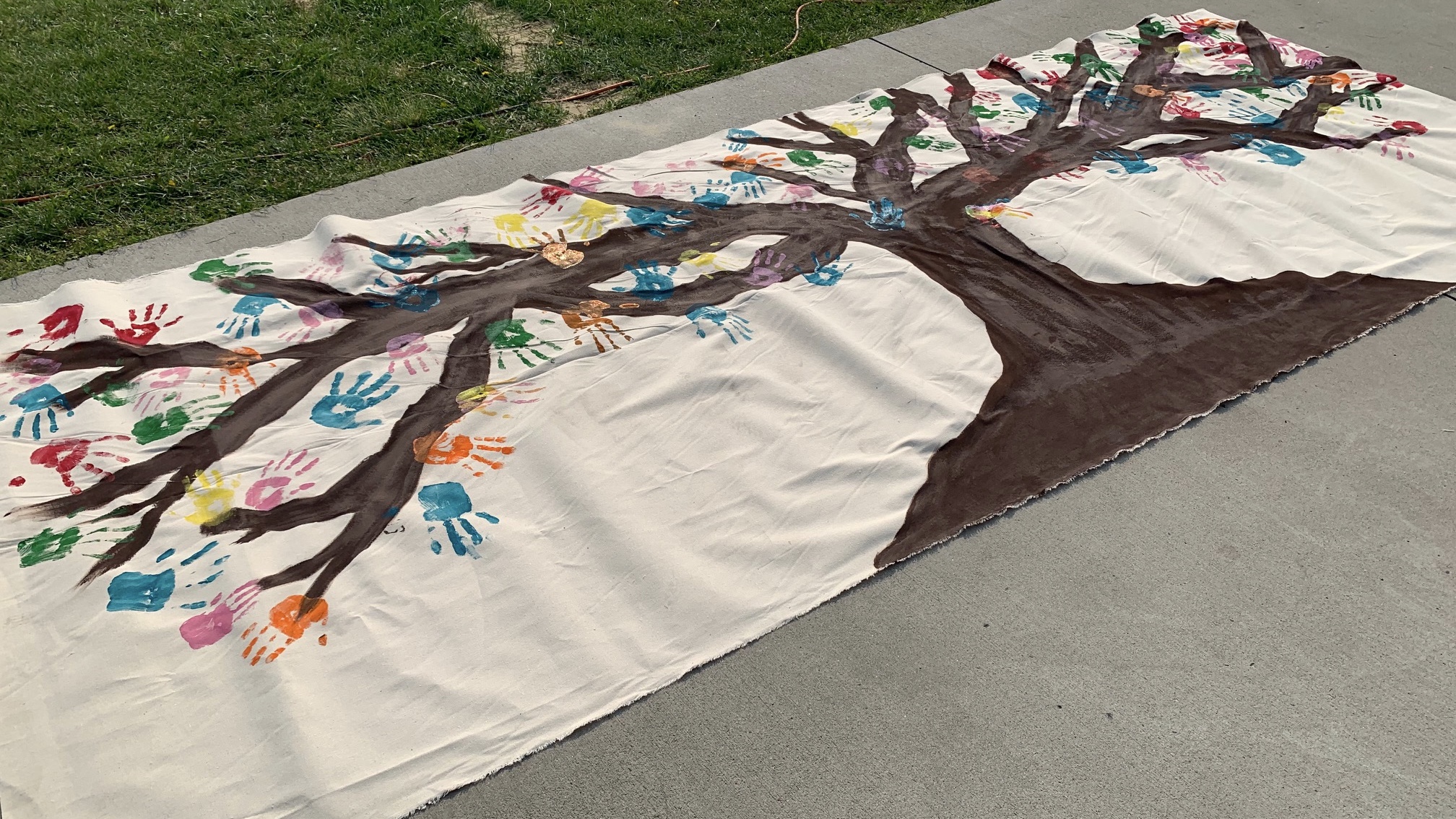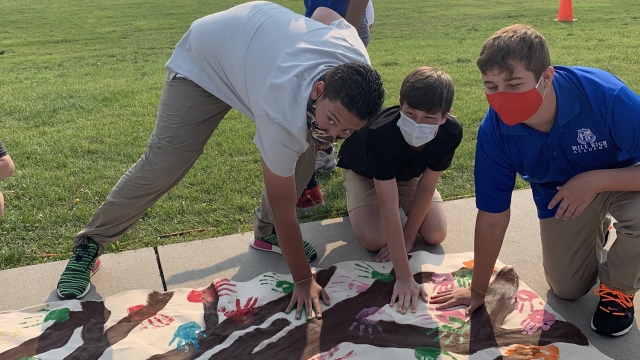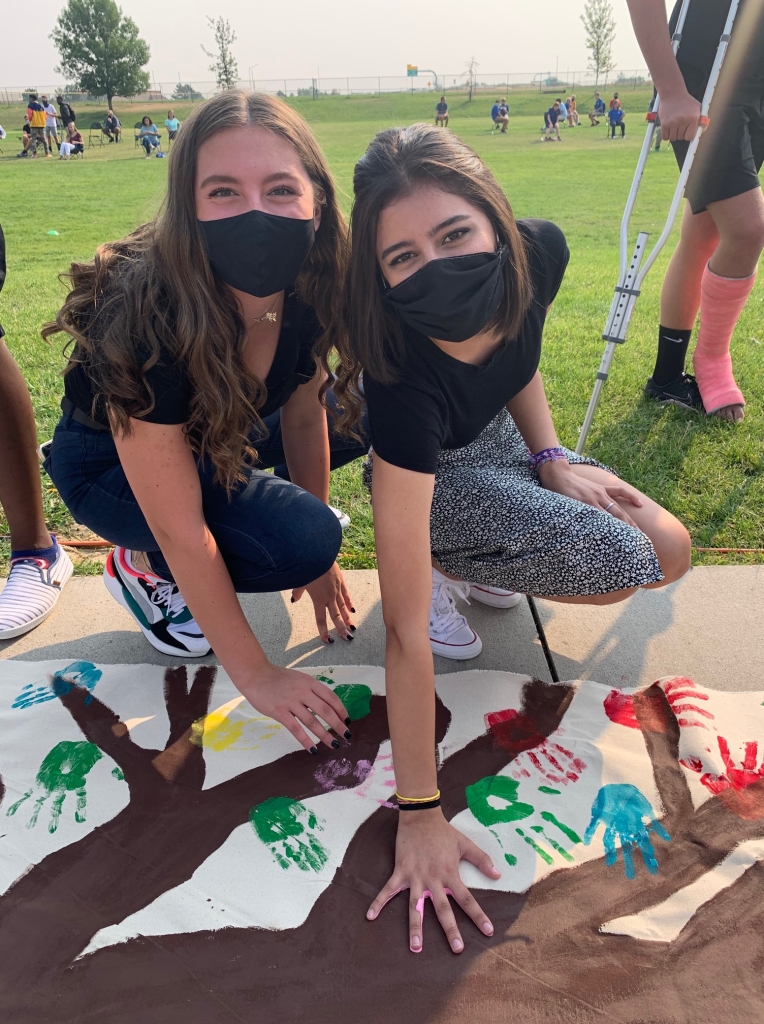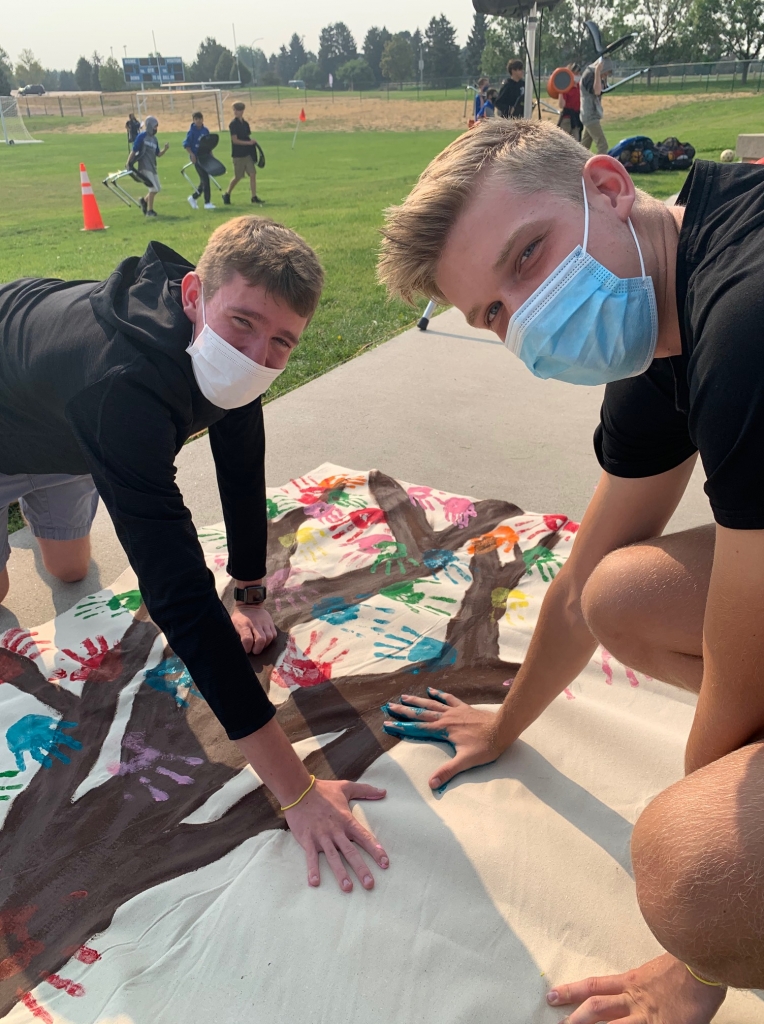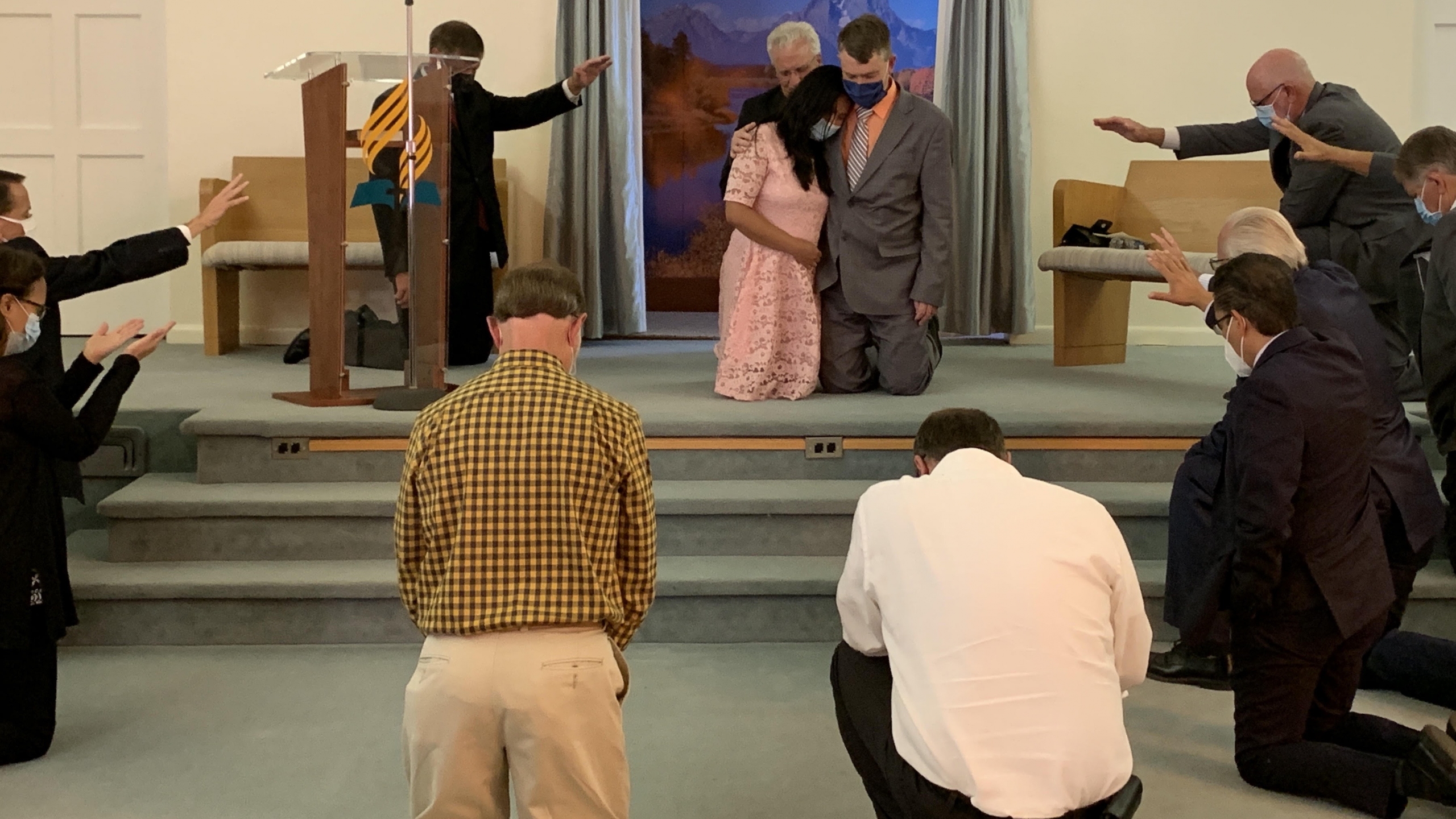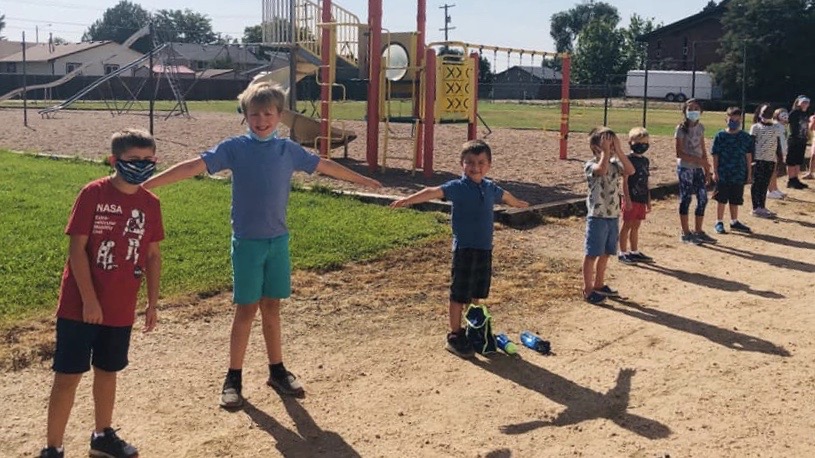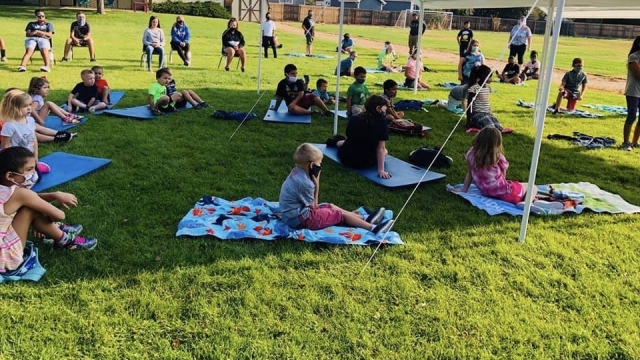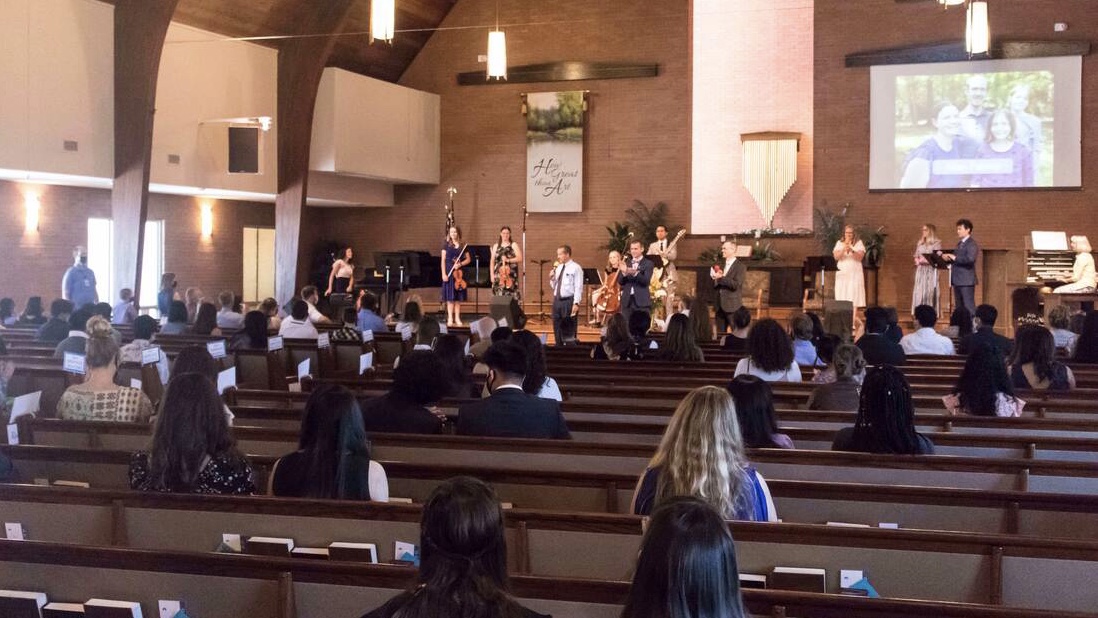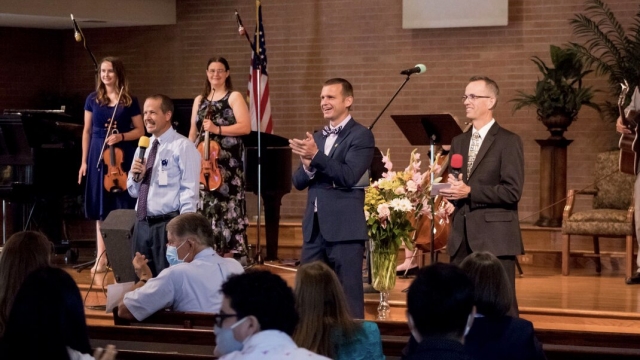By David Klinedinst — It was the last night of the evangelistic meetings. The evening program had just concluded. I was on my way out the door when a church member stopped me in the foyer. She had attended the meetings regularly. Her words startled me.
“I just wanted to tell you how much I appreciated these past few weeks,” she said. “I want to thank you for bringing Christ out in every message. These were the most Christ-centered meetings I have ever attended. If had known they would be like this, I would have invited my friends.”
What she said conjured up mixed feelings within me. On one hand, I was thankful for her words of appreciation. On the other hand, I was greatly disturbed that she hadn’t invited her friends.
I was compelled to ask her why. Her response was revealing. She replied, “In the past, I brought my friends to evangelistic meetings and I was mortified. Things were presented in a negative, condescending manner. Those who didn’t know the truth were made to feel as though they were ignorant or insincere. The speaker’s tone of voice was almost insulting. I didn’t hear much about Jesus. As my friends listened, I wanted to sink into the pew. I was embarrassed. Since then, I have not felt safe inviting friends to evangelistic meetings.”
I will never forget that lady’s words. They have been seared into my consciousness ever since. It reminded me of another lady’s words: “Lift up Jesus, you that teach the people, lift Him up in sermon, in song, in prayer. Let all your powers be directed to pointing souls, confused, bewildered, lost, to the Lamb of God. . . Let the science of salvation be the burden of every sermon, the theme of every song.” * From then on, I determined to do exactly that.
How do we conduct Christ-centered evangelistic meetings? How do we preach Christ in every doctrine? How can we preach our message in a relational way that points people to a sin-pardoning Savior?
The first thing we must do is ask ourselves three essential questions. 1) How does this doctrine point me to Jesus? 2) What does this doctrine tell me about Jesus’s love and character? 3) How does this doctrine point me to the cross? Once we have meditated on these questions for a while, then we are ready to preach.
In this article, I will share some ways we can present Adventist doctrine in a Christ-centered, positive, and relational manner. It is by no means an exhaustive list, but it will get us started.
Prophetic Signs of the Last Days: I used to think that if I could just prove that we are living in the last days that was good enough. If I just provide the audience without enough statistics, that would impress them. But I don’t think that anymore. If we are not careful, this topic can easily become a doomsday message where we bombard people with all kinds of negative statistics about the condition of the world.
The purpose of the signs is to point people to Jesus and move them into a relationship with Him. Jesus uses the end time signs as a bridge to get our attention and help us turn our eyes upon eternal things. He allows us to see the hopeless condition of the world so we will realize our only hope for the future is in Him. Just memorizing the signs want save anyone.
When talking about the signs, be sure to use 2 Timothy 3:1-5. Verse 5 explains that one of the signs is there will be a “form of godliness” in the world, but it will have no power. Use this text as an opportunity to talk about how it’s not enough to be religious on the outside; that religious exercises in and of themselves won’t satisfy our hearts. Explain that true religion is having a personal relationship with Jesus Christ on the inside. Then tell them how to have a relationship with Christ and what steps to take. Contrast the difference between religion on the inside and religion on the outside. Stress the importance of spending time with Jesus through a daily devotional life.
Don’t just give them facts and figures. Give them the One the facts and figures point to – Jesus. Then tell them how to know Him personally.
Second Coming: This is the topic in which we introduce people to the literal return of Jesus. Unfortunately, the focus sometimes ends up being an attack on the secret rapture.
The heart of this message should not be a battle between two theologies ─ literal return versus secret return. The heart of this message should be about preparing people to meet Jesus. Talk to the congregation about whether they are ready to meet Him. Ask if they have the assurance of salvation. Then explain HOW they can have that assurance. If they do not have that assurance, it does not matter how Jesus will come because they won’t be ready.
Don’t misunderstand me. It is important to understand the truth of His literal, visible, audible, and glorious coming. There are many false doctrines that will lead people astray. But the primary focus is not to destroy the secret rapture doctrine. If that is your only intention, you will reach the head but not the heart.
The focus should be on leading people to look at the return of Jesus with peace and assurance in their hearts. After all, whether you believe Jesus is coming literally or secretly is really pointless if you do not have a personal relationship with Him.
70 Weeks: The 70-weeks prophecy is probably one of the most Christ-centered prophecies in the Bible. Its whole focus is on Jesus. Do not miss the opportunity to show how this whole prophecy uplifts Jesus and points us to Him as the Messiah who took on flesh to save us.
In Daniel 7:25, when it talks about how God gave Israel 490 years to return to Him, use this as opportunity to talk about Christ’s everlasting love and patience with us. Tell a story of how the Holy Spirit patiently pursues lost people. Share some of your own testimony of how God wouldn’t let you go.
I know there is controversy concerning the interpretation of the last week of this prophecy. Some people want to move that final week into the future and create a seven-year tribulation with Antichrist coming in the middle, confirming a covenant, and eliminating the sacrificial system. But don’t spend all your time combatting this false doctrine. Spend more time showing how the last week of this prophecy uplifts Christ and the cross.
2300 Days: Take time to explain the sanctuary services of the Old Testament and emphasize the lamb that was slain represents Jesus. Show them how to recognize what Jesus has done for them through these sacrificial offerings.
When you mention the Day of Atonement and the cleansing of the sanctuary, remind them that Jesus is eager to cleanse their lives and present them faultless before the throne. Share a story of someone’s conversion and how Christ was able to cleanse them from sin. Explain how Christ’s perfect, righteous life can count for us.
Describe how Christ serves as our high priest, constantly working in our behalf. Then spend some time sharing the principles of how to talk to Jesus personally and how to have a meaningful prayer life.
Don’t get caught up in trying to “prove” dates. You can certainly talk about 1844. But remember the whole point of this prophecy is not to prove a date, but rather to draw people to an interceding Savior. You might conclude with Revelation 3:20 where Jesus knocks on the door and invites us to open our hearts to Him.
God’s Law: I used to spend all my time on this topic proving that God’s Law is still binding. If I could prove that, I figured I had done my job. But where does Christ come in as the central focus? If all we do is prove the Law is still binding, we are giving them only half the message.
We must point out how the Law illuminates our failures and shortcomings for the purpose of pointing us to Christ and revealing our need for Him. The Law shows that I need Jesus as my Substitute. This is why the devil wants to do away with God’s Law, because it shows me how much I need a Savior. Take time to explain substitution and how Jesus’s righteous life can count for us.
It is an old illustration, but I love it. Rub dirt on your face and then take a mirror and try to cleanse yourself by rubbing the mirror on your face. Your audience sees that this does not make you clean but rather makes things worse. The mirror can only reveal your need for a fountain of water (Jesus). Then go wash your face with water in their presence.
The mirror told you where to go to the water. God’s Law tells you to go to Jesus. It gets the point across in a powerful way. Then use Matthew 11:28 to appeal to the people to come to Jesus and be cleansed.
Sabbath: I used to be satisfied just to establish that Saturday is the Sabbath. But this is only head knowledge. I realized I wasn’t doing justice to the subject and was missing a wonderful opportunity to uplift Jesus.
I came to realize that the Sabbath is all about having a relationship with Christ. Explain that we cease from our labors so we can spend personal time with Him in a way we can’t the other six days. Go to Genesis 2:1-3 and emphasize that Jesus loves us so much that from the beginning He created a day on which to rest from His work to spend time with us. God created the Sabbath because it’s important to Him to have a personal relationship with each of us. Illustrate how the Sabbath shows He is a personal God.
Illustrate to the congregation how two people develop a relationship by spending time together. Tell a story of two people falling in love and enjoying each other’s company. Show how this is the purpose of the Sabbath. The daily work agenda is set aside so we can grow in an intimate relationship with Jesus and fall in love with Him.
Further explain this is why the devil hates the Sabbath. He despises anything that leads to spending time with Jesus. This is why he has worked so hard to destroy the Sabbath. He hates the opportunity it affords to spend time with Christ.
It might also be good to mention Colossians 1:15, 16 and Hebrews 4:4-10. Colossians 1:15, 16 identifies Christ as the Creator. Since the Sabbath is a memorial of creation, the Sabbath uplifts Jesus as the Creator. Hebrews 4:4-10 uses the physical rest of the Sabbath to symbolize our spiritual rest in Jesus. In other words, we can stop worrying about not being good enough and we can rest our faith in Jesus. Salvation is based on His works, not on ours. This means the Sabbath uplifts Jesus as the Redeemer. Therefore, if the Sabbath uplifts Christ as Creator and Redeemer, this makes the Sabbath the most Christ-centered, grace-oriented teaching in the entire New Testament! Now that is worth sharing!
Don’t just prove that the seventh day is the Sabbath. Emphasize the relational aspect of the Sabbath and how it deepens our relationship with Christ.
State of the Dead: Remember the focus of the message is not simply to prove that people don’t go to Heaven when they die. That, too, is only head knowledge. Yes, you want that truth to be clear, but it’s not the primary focus.
The primary focus is that through Jesus there is hope of life after death. Emphasize Revelation 1:18, where Jesus says, “I have the keys of death.” He is the key to overcoming death and having eternal life. Repeat this throughout your message. It is filled with assurance.
Talk about the fact that when we sleep in the grave Jesus is shielding us from all the pain and suffering of this world. Describe the resurrection when Jesus calls people from the grave to be reunited with family in a scene of inexpressible joy. Families enter the Kingdom of Heaven and share eternity together forever. Tell a story of someone you look forward to seeing again. Ask the audience if there is someone they want to be reunited with. Then appeal for them to have a saving relationship with Jesus.
Don’t spend all your time talking about spiritualism and telling exciting stories about the occult. Spend more of your time talking about what Jesus has done for us: His victory over the grave, and how He will give us the same victory.
Jewelry and Adornment: Too often when it comes to this topic, we emphasize what we should not wear, rather than what we should wear. Use Galatians 5:22-23 to talk about the importance of putting on the character of Christ and the fruit of the Spirit. Emphasize how Jesus wants us to be a reflection of His character. If all we do is teach people not to wear jewelry without teaching them to put on Christ, then I’m afraid we’ve missed the boat.
When Christ is put on in the heart, the outside will take care of itself. We don’t want to create converts who wear no adornment on the outside but neither wear Christ on the inside.
The Antichrist: At first glance it may seem difficult to make Jesus the central focus of this subject, but it is possible.
Share that Jesus is so concerned about our spiritual lives that He warned us about an antichrist power which would be working in this world. Explain that this power would seek to take Jesus’s place in our lives as the supreme authority and Savior from sin. Tell them how this would happen in a very deceptive way over a period of more than 1,000 years. Remind them that Jesus loves us too much to let us be deceived, so He gave us some prophecies to warn us of this power.
You may be wondering, “Well, what shall I do when I have to identify the Papacy as the antichrist power?” We can’t hide the truth, but there are some important things to remember. First, you must be sure to emphasize that God is not condemning Catholic people. There are many Catholic people who are living up to all the light they know and have given their lives in selfless service to God and humanity. We need to acknowledge that. Jesus is warning us of a system of beliefs that usurps His authority and His Word.
The anti-christ system which came from Rome in the Middle Ages can basically be narrowed down to three principles:
- The commandments of men are placed above the commandments of God.
- Traditions are placed above truth.
- The focus is on human authority instead of Jesus’s authority.
These are the principles of the beast. When we follow these principles in our lives, we are following the beast, no matter who we are or what church we come from. (Yes, even Adventists can follow the principles of the beast.)
Show that the principles of Jesus are just the opposite. They include:
- The commandments of God are placed above the commandments of men.
- Truth is above tradition.
- The focus is on Jesus’s authority rather than human authority.
Point the people to the cross of Christ and invite them to make a choice. Invite them to choose between the principles of Jesus Christ and anti-christ.
The Mark of the Beast: This one is not as hard as it appears. You will bring out the Sabbath when you talk about the mark of the beast, and we have already established how to make the Sabbath Christ-centered. You will repeat many of those points in the mark of the beast message.
Believe it or not, the emphasis of this topic is more than the Sabbath. The emphasis is on loving and following Jesus completely. The Sabbath is simply the tool God uses to test that allegiance. The mark of the beast message is really about surrender. Will I completely surrender my heart to Jesus and His teachings? Focus more on the immeasurable love of Christ as revealed on Calvary. Show how Jesus surrendered all that we might be saved. Tell the story of Gethsemane when Jesus lay prostate on the ground sweating drops of blood, yet cried, “Not my will, but Thy will be done.” Appeal that Jesus is asking us to make that same surrender.
When Calvary is truly understood, the Sabbath, the seal, and the mark will fall into place naturally. Always bring it back to the cross.
Health: We must be careful not to come across in a legalistic way when presenting this subject. Spending the whole time telling people why they should become vegetarians is not exactly Christ-centered.
Focus more on WHY Jesus is concerned with our physical health. One of the wonderful truths about Jesus is that He loves and cares for us personally. He is not concerned just about our spiritual life, but also about our physical life here on Earth.
Emphasize John 10:10, where Jesus expresses His desire for us to have a healthy, happy, and abundant life. Satan seeks to influence us to adopt habits that destroy health and ruin happiness. Jesus seeks to protect us from such things and preserve our health and happiness.
You could picture Jesus as saying, “I created you. I formed your body with My own hands. It hurts Me to see you battling sickness, pain, and addictions. I am giving you some health principles to follow because I desire you have a good life. If you trust Me with your spiritual life, then trust Me with your physical life.”
When you present the subject of health from this perspective, Christ’s love for His created beings shines through clearly.
The Remnant: This is an extremely important subject. But, unfortunately, it can come across in a very arrogant way. Jesus never came across with a “holier than thou” attitude. Neither should we.
When you talk about the Advent Movement of the early 1800s, it is very important that you do not present Adventists as superior over everyone else. Jesus recognized that there were other people living up to all the light they had. In John 10:16, Jesus said He had sheep in different folds, but He was calling them into His one-fold.
Don’t put down other churches. You will never win their hearts by doing so, and even those who are not Christians will be turned off. Acknowledge the good in other churches. Remember, during the Middle Ages and the Reformation, they were used by God to help restore truth one link at a time. They may not have had all the truth, but they contributed toward its restoration.
People like the Waldenses, Wycliffe, Huss, Luther, Calvin, Wesley, and countless others. These people formed churches that played a part in God’s plan of restoring truth. Acknowledge the part they played and thank them.
Then use Revelation 12 share how in these last days God has raised up a movement that would emphasize two of the most Christ-centered truths — the Second Coming and the Sabbath. Show how Jesus used this movement to fulfill His desire to unite His people under one-fold. Explain how this movement became known as the Seventh-day Adventist Church. Explain that this church is simply a last-day movement made up of people from all different faith backgrounds who have decided to unite in following Jesus and His truth in the end times.
Then share Jesus’s invitation in Revelation 18:4, where Christ invites us to come out of error and follow Him above everyone else.
Conclusion. These are some simple ways to center our topics in evangelistic meetings on Christ. When we do this, I believe God will honor and bless our work.
However, the best way to preach Christ in the doctrines is to have Christ in the center of your own life. When Jesus lives in your own heart in a deep and personal way your preaching will come from a heart that knows Him intimately. There is no substitute for this. It will have a powerful influence. You will no longer be just preaching. You will be sharing a testimony of how Jesus is your all in all.
“Your success will not depend so much upon your knowledge and accomplishments, as upon your ability to find your way to the heart.”** You can reach their hearts only when He lives in yours.
—David Klinedinst is the Evangelism Director for the Chesapeake Conference; photo by pixabay.
* Ellen G. White, Gospel Workers (Washington D.C.: Review and Herald, 1915) 159-160.
** Ellen G. White, Evangelism (Washington D.C.: Review and Herald, 1946) 141.
Published courtesy of the NAD Ministerial website


